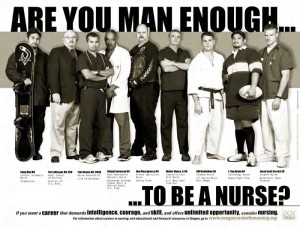“If not me, who? If not now, when?”
Great applause and a standing ovation followed Emma Watson’s grand speech at the UN headquarters. I sat there beaming at the screen. Way to go, Hermione!
It must really take quite some courage to get up there, and speak on a subject like gender stereotypes. The topic has turned into quite a sensitive one, making it a touchy subject to bring up. Gender stereotyping is to impose an outline on someone, about how they should ‘typically’ be; based on their gender. Does being a male allow men to be more aggressive? Or does being a female force women to be submissive?
To stereotype others (and by extension, oneself) is drilled into us from childhood and this behavior evolves as we grow. Girls choose not to play sports so that they don’t come off as Effeminate. Male doctors are judged for their choice to be gynecologists. The times, however, are changing (for the better). With technology and media at their disposal, people have begun to stand up against what they believe is wrong. A lot of people are talking about it. But the essential question is how far have they been able to successfully change attitudes.
We need to talk about the issue, and at the same time, acknowledge the efforts people are taking to make a difference. It is worth mentioning these campaigns to help their noble causes fulfill their purpose:
1. United Nation’s ‘HeforShe’ campaign
With Emma Watson as its Goodwill Ambassador, the ‘HeforShe’ campaign was officially launched on September 20, 2014, at the UN Headquarters. Watson’s head turning speech enabled the campaign to kick off on a grand note, where she talks about feminism, its relevance in today’s scenario and the stereotypical concept people often attach to the word.
2. P&G’s ‘Like a Girl’
On June 26, 2014 P&G’s Always launched an ad video called, “Like a Girl” which questions what it means to do things like a girl. From when is ‘Like a girl’ considered as an insult? Had it been a phrase “Like a Jew or a Muslim”, or had it been a phrase “Like an Indian or an American”, wouldn’t it have caused unimaginable controversies? Then how can people so easily get away with insulting someone based on their gender?
3. Vogue India’s ‘Boys Don’t Cry’
Featuring Bollywood actor, Madhuri Dixit, this short-film focuses on man’s role in women empowerment. The idea suggests that boys who are taught to ‘man up’ and hold back their emotions, eventually grow to express their fears through violence. It tells us how people are always trying to conform to society’s ‘norms’ and expectations, that on failing to do so, they are faced with cruel disapproval and ridicules. Boys should not be judged for being vulnerable, nor should girls be for being ambitious.
4. OCN’s ‘Are You Man Enough to Be a Nurse?’
In 2002, the Oregon Centre for Nursing (OCN) released the above poster as a part of their recruitment campaign. The initiative sort to degenderize the nursing profession that is excessively female dominated. Though the campaign was launched about a decade ago, it received huge attention and continues to impact the way young boys think about nursing. It is worth mentioning this initiative because not only has it changed mindsets drastically, but has also catalyzed the birth of other campaigns like ‘20×20 Choose Nursing’.
5. The Dove Campaign for Real Beauty
Unilever’s Dove has challenged gender stereotypes and brought different kinds of women to a common discussion. Every succeeding year afterits launch, the initiative only got bigger and better, unlike the other campaigns, that fade out of enthusiasm. In 2010, the campaign released a bolder version called the Dove Movement for Self Esteem. Over the years, the campaign celebrates diversely embodied beauty, and inspires women to confide in their true inner beauty.
The gender stereotyping issue has been embedded into our cultures so comfortably that it no longer feels ‘strange’. Doesn’t our nation pride itself of male cooks as well as female boxers at the same time? Why does our gender have to complicate what we want to do, and who we want to be?
There are many others out there raising their voice, and we need to acknowledge and support those who have taken the first step for change.




![Social alienation is a sharp tactic in the toolkit of domination [although, here it is the extension of female subordination]. Photo by Hans Van Den Berg/ flickr.com](https://b-change.me/wp-content/uploads/2018/01/1sTnAkZgJEx1Yb6fctMyVuA-570x300.jpeg)






